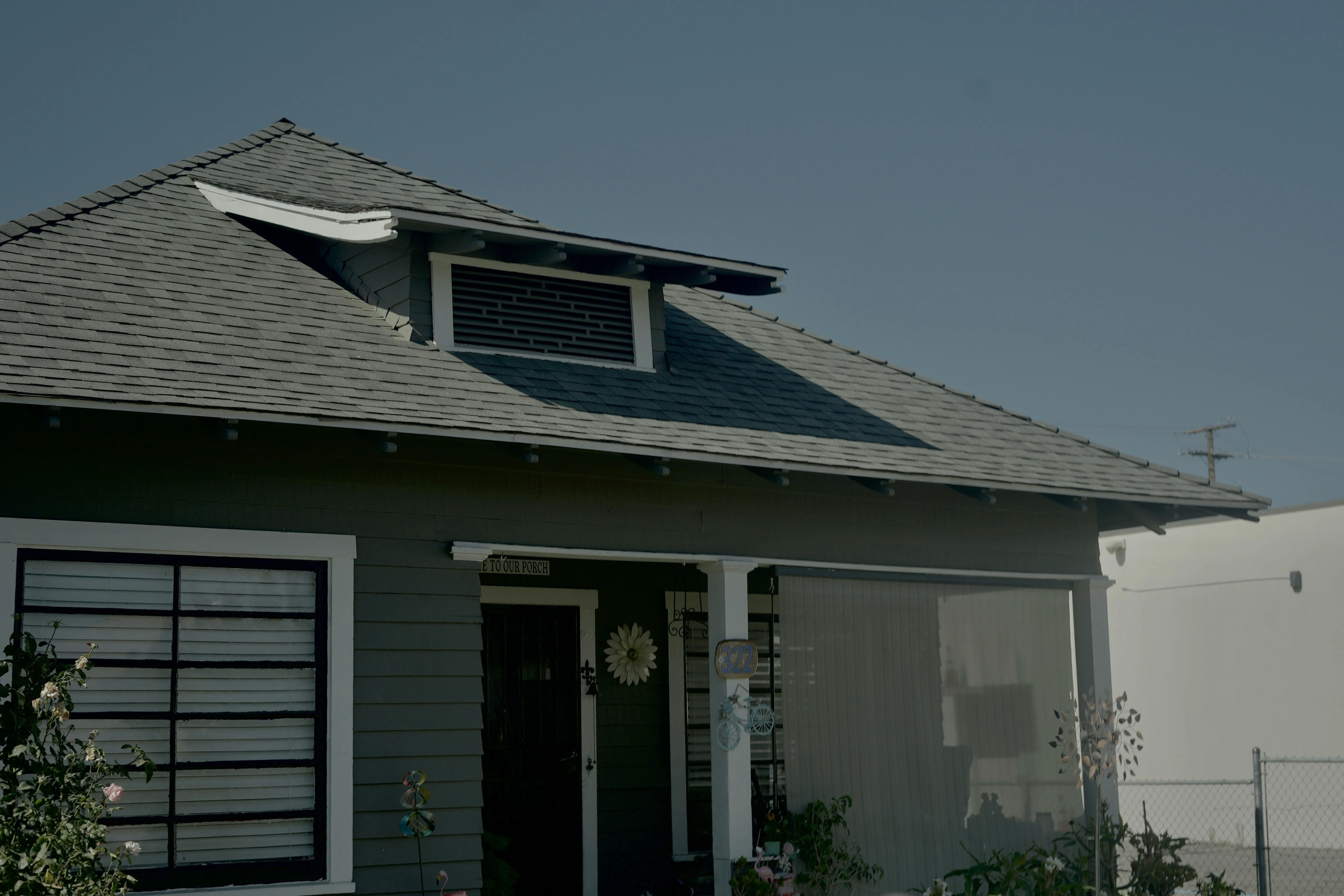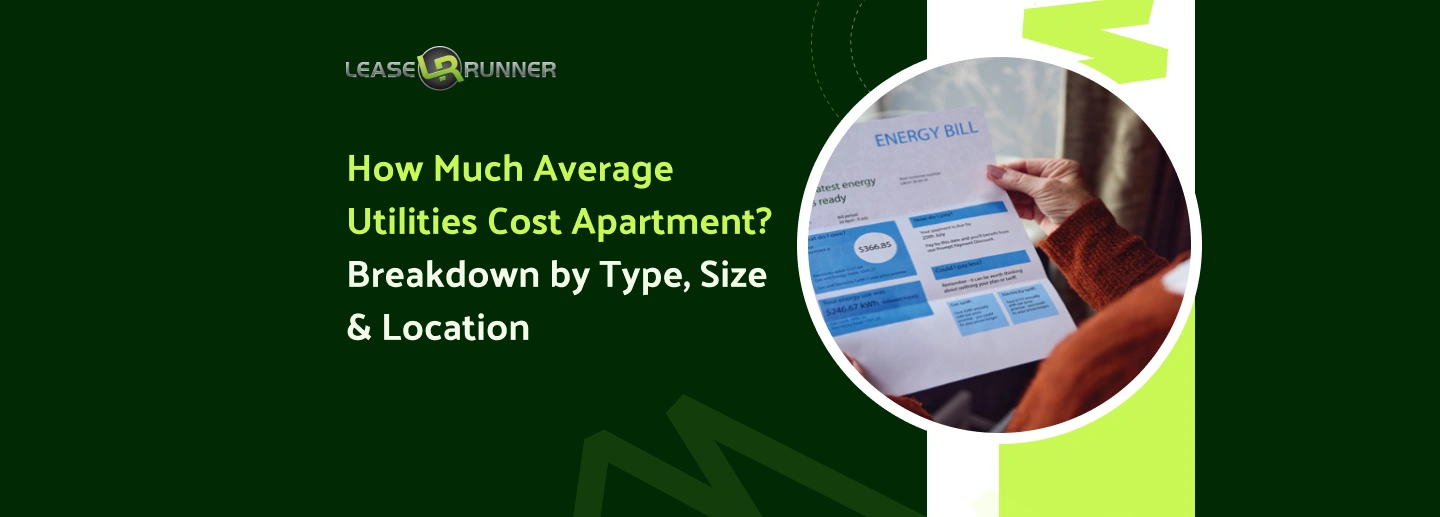When tenants do not pay rent, the situation can get serious fast. What happens when unpaid rent goes to collections is a big concern for landlords and tenants. This process can hurt credit scores and make it hard to rent in the future. For landlords, it can mean lost money and stress.
Within today’s article, we will explain unpaid rent collection, landlord debt recovery, and how rental collection on credit reports affects tenants. We also cover steps to take, legal rules, and solutions for both sides. Scroll down for more detailed information now!

Unpaid rent collection refers to the process landlords use to recover missed or overdue rent payments from tenants. When tenants stop paying on time, landlords must follow legal steps to protect their income and property rights.
Most landlords begin by trying to resolve the issue directly. They may issue reminders, add late fees if outlined in the lease or allowed under state rules, or deliver a formal notice to pay or quit. For guidance on setting penalties fairly, landlords can review rent late fee guidelines before applying these charges.
If payment is still not made, the unpaid balance may be escalated. Steps often include:
- Payment tracking tools: Many landlords rely on software that sends automatic reminders and records rent activity. Using options like rent collection online creates a clear payment trail, which becomes vital in disputes.
- Formal notices: A pay-or-quit notice warns tenants that eviction proceedings could begin under state and local law if rent remains unpaid.
- Collections agencies: If the debt continues, landlords may hire a third-party collections agency. This process damages the tenant’s credit score, and the delinquency can stay on the reports for up to seven years.
What Happens to Tenants’ Credit When Rent Goes to Collections?
When unpaid rent goes to collections, tenants face lasting consequences. The process begins after the landlord sends a late notice and the lease’s grace period expires, often leading to a notice to pay or quit. If rent remains unpaid, the landlord sends the rent to collections. This formal action triggers major changes in the tenant’s financial future.
What Happens to the Tenant’s Credit Score?
Once debt collectors report unpaid rent, a negative mark quickly appears on a tenant's credit report. This single collection can drop a tenant’s credit score by 50 to 150 points, significantly increasing the difficulty of securing a loan for cars or homes. In this case, tenants may need to send a debt validation letter or dispute with credit bureaus if errors occur.
Impact on Tenant’s Ability to Rent
When unpaid rent goes to collections, tenants often face rental application denial. Many landlords run strict background checks. They see unpaid rent, late payments, or records of a formal eviction process. Such marks frequently lead to rejection.
Some independent landlords also ask for higher security deposits from tenants with poor credit. For example, if a tenant has a collection account for unpaid rent, they might need to pay double the usual deposit, as noted in the security deposit criteria suggestions.
Landlords also require tenants to prove steady income. Applicants who do not meet the 3 times the rent income rule often get denied. Collections give landlords reasons to doubt financial reliability. Tenants with unpaid rent collections face higher barriers to securing new rental housing.
Credit Damage
Falling behind on rent can impact credit for years. If a landlord reports unpaid rent to collections, that debt often appears on a credit report, lowering the tenant’s score. This damage may hurt chances to rent new homes, open credit cards, or secure loans. Even after resolving the balance, the record generally stays, making future financial options more difficult for tenants.
Debt Owed
The Fair Debt Collection Practices Act (FDCPA) sets strict rules for debt collectors. These rules protect tenants from unfair debt collection practices. Collection agencies often add extra fees on top of the original rent past due balance. These fees increase the total amount owed, making it harder for tenants to catch up.
Tenants who still live in the rental property without paying rent risk facing a formal eviction process, which depends on state and local laws. Eviction involves legal steps that can lead to court orders for removal.
Tenants should know their rights during this process and understand that collections may continue alongside eviction. Proper notice, like a past due rent notice, is required before deeper collection or eviction actions.
Difficulty with Future Rentals
Unpaid rent sent to collections hurts tenants’ chances of renting again. Landlords check credit and rental histories with professional tenant screening services. A negative mark on a credit report or unpaid collections often causes rental application denial.
Even after paying off collections, tenants may need to show proof of steady income by providing a proof of income letter or explaining past rent arrears. Some landlords require higher security deposits from tenants with bad credit or collections.
Stress and Financial Impact
When rent goes unpaid and is sent to collections, tenants face more than just money problems. They often get constant calls from debt collectors, which can feel overwhelming and like harassment. Legal actions, court cases, and disputes follow, costing them both time and money. This situation creates ongoing stress and anxiety that affects daily life and can cause serious financial strain.
Tenants should know that they have rights. Requesting a debt validation letter is crucial; it forces collectors to prove the debt before payment. All challenges to the debt should be in writing to protect tenants under laws like the FDCPA, which bans abusive collection practices. Acting quickly after receiving notices helps reduce stress, avoid extra costs, and protect your credit score.
Understanding these emotional and financial challenges can help landlords and tenants work toward better solutions and maintain a healthier landlord-tenant relationship.
Tenant Rights and Protections in Rent Collection
Tenants have important rights when rent is collected from them. These rights are backed by local, state, and federal laws. For example, the Fair Debt Collection Practices Act (FDCPA) stops debt collectors from using unfair or harsh methods to get unpaid rent.
To understand your rights against collectors, especially regarding housing and rental debt, you can consult guidance from the Consumer Financial Protection Bureau. Tenants can report if collectors harass them or make false statements. Some states and cities also offer extra protections to help tenants avoid eviction or handle overdue rent more safely. Landlords must send clear late notices when rent is not paid on time.
They also must give a proper notice to pay or quit before starting an eviction. Tenants still living in the property have rights during this process, and landlords must follow state and local laws. The notice to pay or quit tells tenants how to avoid eviction by paying the rent due.
Legal Aspects of Rent Collections for Landlords
Landlords must follow state laws when collecting rent or charging late fees. The lease agreement should clearly say when rent is due, what fees apply for rent past due, and what happens if rent isn’t paid. For example, in Kansas, landlords must send a 3-day pay or vacate notice before evicting them for nonpayment. This notice gives tenants a chance to pay rent and avoid eviction.
The right to collect unpaid rent is limited by the statute of limitations. This time usually starts at the date of last delinquency, the last missed rent payment, or a late notice. After the statute ends, landlords cannot sue or collect old debt.
Keeping records of all late notices and payments helps landlords follow the law and prove debts if sent to collections. Sometimes landlords use collection agencies to get unpaid rent. But they must ensure all legal steps, like notices and eviction filings, were done correctly.
Landlords should also understand rules on eviction reports and tenant screening, like the laws about disputing eviction records and identity proofing. These help keep rental processes fair for both landlords and tenants.
Can a Landlord Send Tenants to Collections Without a Judgment?
Yes, they can send a tenant's unpaid rent to a collection agency without first getting a court judgment. This is because the debt is based on the signed lease agreement, which is a legally binding contract. The landlord simply needs to prove the debt is valid with proper documentation.
However, a landlord must follow certain steps and laws before and after sending a tenant to collections. More importantly, tenants have specific rights under state and federal law, most notably the Fair Debt Collection Practices Act (FDCPA). This law applies to third-party collection agencies and prohibits them from using abusive, deceptive, or unfair practices to collect a debt.
If a tenant is contacted by a collection agency, they have the right to:
- Dispute the debt. The tenant can send a written letter to the collection agency within 30 days of the initial contact to dispute the validity of the debt.
- Request debt validation. If a tenant disputes the debt, the collection agency must stop all collection efforts until it provides proof that the debt is valid. This validation should include documentation proving the debt is owed, such as a copy of the lease and the payment history.
- Report harassment. If a collection agency violates the FDCPA by using harassing language or making false statements, the tenant can report them to the Consumer Financial Protection Bureau (CFPB) or a state attorney general's office.
5 Steps to Send Unpaid Rent to Collections
Tenant missed rent payments; landlords have to clearly handle overdue rent collection and debt recovery for their property. Doing this right helps landlords recover money and avoid legal trouble. Here are five simple steps landlords should follow to send unpaid rent to collections properly.

Step 1. Review the Lease and Laws
First, landlords should review state legislation and the lease. The contract must be explicit about rent due, the late charge, and what happens if rent is late or unpaid. Some leases, for instance, offer a five-day grace period before a late charge is collected.
State legislation may mandate that, before initiating tenant collections or eviction, landlords provide written notice. Knowing these rules ensures a legal procedure for collecting unpaid rent and helps landlords avoid mistakes.
Step 2. Send a Demand Letter
Landlords then formally issue the renter a demand letter. Including rent and any late penalties, this letter shows the total owed amount. It also specifies a payment deadline—typically ten to fourteen days.
The letter details what happens, including forwarding the amount to a collection agency, if the renter fails to pay. This step is important before moving to apartment collections. It shows the landlord tried to resolve the issue fairly.
Step 3: Try to Talk and Solve
Before sending the debt to collections, landlords should try to talk with the tenant. This can be by phone, email, or in person. Many tenants face money problems and may want a payment plan. For example, a tenant who lost their job might pay half the rent now and the rest later.
Talking early can often fix problems and stop the need for unpaid rent collection. It also keeps the landlord-tenant relationship better.
Step 4: Hire a Collection Agency
If the renter fails to pay or reply, landlords have the option to engage a collection agency. The agency will ask for the lease, payment records, and letters sent. The agency then attempts to collect the debt for a percentage or fee.
Good agencies enable landlords to comply with regulations like the Fair Debt Collection Practices Act. It also guards against legal danger for landlords. And this is also the answer to the question of "When can a landlord send a tenant to collections?", once the renter has failed to pay or reply to the demand letter.
Following direct attempts at communication and formal notification, the landlord can then proceed with debt recovery through a collections agency, a method that is typically employed after exhausting all direct collection attempts. This step should be taken only after the landlord has meticulously followed the prior steps to ensure compliance and avoid legal issues.
Step 5: Participate in the court session
If a tenant fails to pay and the collection agency is unsuccessful, landlords may need to take legal action to recover the money. Filing a lawsuit, typically in a small claims court, is often the next step. A landlord can pursue a money judgment for the unpaid rent and any related fees.
Here is what this process usually involves:
- Filing the Claim: The landlord files a claim with the appropriate court and serves the tenant with the court papers, which state the amount of money owed and the date of the hearing.
- Preparing for the Hearing: At the court session, a landlord must present a clear case with strong evidence. This includes providing a copy of the signed lease agreement, detailed payment records, copies of all late notices and demand letters, and any other relevant communication.
- Possible Outcomes: The judge will review the evidence from both sides. If the landlord's case is successful, the court can issue a money judgment against the tenant for the unpaid rent. This court order legally confirms the tenant owes the debt.
In some cases, if the tenant is still in the property, the court may also issue an eviction order. While getting a judgment can be a long process, it gives landlords more powerful tools to collect the debt, such as wage garnishment or placing a lien on the tenant's property.
Step 6: Track the Process
After hiring the agency, landlords must stay updated. They should ask for regular reports on payments and progress. If tenants dispute the debt, landlords may need to provide more proof. Watching the process helps landlords stay in control and make landlord debt recovery smoother and more effective.
Following these five steps helps landlords handle unpaid rent collection clearly and legally. It improves the chances of getting the money owed while lowering conflicts and legal problems.
Handle late payments legally and keep your property cash flow steady.

Recover Rent. Protect Your Business.
How do collection agencies manage unpaid rent that goes to collections?
When a landlord cannot collect rent, they may hire a collection agency. These agencies take over recovering unpaid rent from tenants. They use different methods to contact tenants, arrange payments, and report debts. Knowing how collection agencies operate helps landlords and tenants understand what happens next after rent is sent to collections.
What are the typical fees charged by rent collection agencies?
Collection agencies charge landlords in a few common ways. The fee structures impact how much the landlord pays and how much effort the agency will put into recovering the debt. Here are the main fee types:
Flat Fee Collections
Some agencies charge a fixed fee. For example, a landlord may pay $100 to the agency to handle a case. The agency then tries to collect the full rent owed. The landlord might pay this fee up front or after some success in collecting. This method is good if the landlord wants a set cost, but may not get aggressive collection efforts.
Contingency Collections
Agencies often work on contingency, meaning they only get paid if they successfully collect money. The fee is a percentage, often 25% to 50%, of what is recovered. For example, if a tenant owes $2,000 and the agency collects $1,800, the agency keeps 30% ($540) and the landlord gets the rest. This method reduces landlord risk but shares the recovered amount.
Other Potential Costs
Besides fees, agencies may charge for court filings, legal notices, or credit report fees if they escalate the case. Some also add service fees for disputes or payment plan setups. Landlords should ask about all possible charges before signing a contract.
Collection agencies follow laws like the Fair Debt Collection Practices Act (FDCPA). They send legal late notices and work under rules to avoid harassment. Agencies usually start by notifying tenants of the rent past due and may send a notice to pay or quit to push for payment.
Tenants who ignore collections risk a bad mark on their credit report and possible further legal action, such as a formal eviction process under state and local laws. The start of collections depends on the date of last delinquency, and the statute of limitations limits how long a landlord or agency can collect debt.
Knowing what happens when unpaid rent goes to collections helps both parties prepare for these consequences and resolve debts sooner.

Best Practices to Prevent Unpaid Rent and Avoid Collections
The greatest approach to prevent risky unpaid rent collection is to stop issues before they occur. Employing smarter methods allows landlords to lower risks and maintain renters who make regular payments.
These are some significant recommendations meant to assist landlords in avoiding costly landlord debt collection and unpaid rent.
Screen tenants effectively to prevent payment issues
Good tenant screening is the first step. Check credit reports, rental history, employment, and income. Avoid tenants with past apartment collections or evictions. For instance, a call for a minimum credit score and evidence of income at least three times the rent. This guarantees renters can pay their rent on schedule.
Get the required information by gathering using a comprehensive rental application form. Check their eviction history properly, call previous landlords and companies to confirm all specifics.
To protect your property and neighbourhood, do background checks, including credit reports and criminal histories. Reliable credit and background checks are offered by providers such as LeaseRunner, with full-fledged reports you need in the tenant screening process, plus free rental applications..
Interview applicants to learn more about their rental history and habits. Ask about past late payments or evictions. This personal touch can reveal red flags not seen on paper.
Setting clear payment expectations in lease agreements
Write clear and detailed lease agreements. Specify the rent amount, due date, late fees, and grace periods. Include what happens if rent is unpaid, such as possible landlord collections or eviction.
For example, state that rent is due on the first of each month, with a five-day grace period. After that, a late fee of $50 applies. Also, mention that unpaid rent may be sent to collections after 30 days.
Clear lease terms prevent confusion and give landlords a strong legal basis for landlord debt recovery if needed. Tenants who understand the rules are more likely to pay on time.
Communication strategies to address late payments early
Act quickly when rent is late. Contact tenants by phone, email, or text to remind them. Ask if they are facing problems. Many tenants want to pay but need help.
Offer payment plans when needed. For example, if a tenant loses a job, agree on paying half the rent now and the rest in the next two months. This keeps the tenant in good standing and avoids unpaid rent collection.
Keep all communication in writing. Document phone calls and emails. This record helps if the debt goes to the landlord's collections or the court.
Offer Multiple Payment Options

Additional Tips to Avoid Unpaid Rent Collection
- Use online rent payment systems. These make paying easy and provide automatic reminders.
- Enforce consistent policies for all tenants to avoid discrimination claims.
- Conduct periodic property inspections to maintain contact and spot issues early.
- Educate tenants about the consequences of unpaid rent, including credit damage and collections.
Best Practices to Avoid Disputes and Legal Risks
Clear rules and open communication can prevent most rent disputes. Following good practices helps landlords and tenants avoid costly legal fights. Both parties benefit when rent payment terms and consequences are easy to understand. Below are key tips for landlords and tenants to reduce conflicts and limit the negative effects of what happens when unpaid rent goes to collections.
For Landlord
- Use a detailed lease. Include rent amount, due date, and all fees like late fees. Clear terms reduce confusion and create a strong legal footing.
- Send prompt late notices or notice to pay or quit as soon as rent is past due. Early communication often stops problems before they escalate.
- Keep accurate records of all payments, notices, and tenant contacts. Documentation supports collections or a formal eviction process if needed.
- Follow state and local laws on eviction notices and tenant rights. Use only legal methods to avoid lawsuits or claims of harassment under the Fair Debt Collection Practices Act (FDCPA).
- Use digital rent tools to automate reminders and payments. This cuts down missed rents and improves transparency.
- Know the statute of limitations for collecting unpaid rent. Acting within this period ensures debts are enforceable.
For Tenant
- Read the lease carefully before signing. Know the rent due date, payment methods, and consequences of late payments.
- Pay rent on time or contact your landlord early if you have money problems. Early talks can prevent consequences of unpaid rent debt collection.
- Keep proof of payments and written communication with your landlord to avoid disputes.
- Respond quickly to any collection or late payment notices to avoid a negative mark on your credit report.
- Understand your rights under the FDCPA, including the right to request a debt validation letter if contacted by debt collectors.
- Get help from tenant groups or legal aid if you face eviction or aggressive rent collections.
Summary
What happens when unpaid rent goes to collections is important for landlords and tenants. For landlords, unpaid rent collection and landlord debt recovery can help get back money, but can also bring stress and legal steps. For tenants, apartment collections and a rental collection on a credit report can hurt credit for seven years.
The best plan is to prevent problems: screen tenants, write clear leases, and talk early. LeaseRunner's effective tenant screening service offers landlords a simple, secure platform to screen tenants and collect rent online, helping reduce late or unpaid rent issues while keeping processes streamlined and transparent.
If collections are needed, know your rights and what to do, including how to dispute apartment collections and how long collections last.
FAQs
Q1. What Happens When Unpaid Rent Goes to Collections?
When unpaid rent goes to a collection agency, it is typically reported to the major credit bureaus. This action significantly lowers the tenant's credit score, making it difficult to rent another home or obtain loans for up to seven years.
Q2. How Long Does Unpaid Rent Stay on Credit?
Unpaid rent collections stay on a tenant’s credit report for seven years. This period starts from the first missed payment. Even if the tenant pays later, the collection record remains. It may show as “paid” or “settled,” but the negative mark stays for the full seven years.
Q3. How to Dispute Apartment Collections?
Tenants can dispute apartment collections if they believe the debt is wrong. To do this, tenants should:
- Request proof of the debt from the collection agency.
- Gather payment records and any communication with the landlord.
- File a dispute with the credit bureaus (Experian, Equifax, TransUnion).
The credit bureaus must investigate and fix any errors within 30 days.
Q4. Are There Ways to Avoid Landlord Collections?
Yes. Landlords and tenants can avoid collections by working together. Payment plans help tenants pay back rent in smaller amounts. Mediation services can also help resolve disputes without legal action. These options save money and protect credit.
Q5. What Are the Risks of Using a Collection Agency?
Collection agencies charge fees, often 20% to 50% of the recovered amount. A few agencies could use aggressive methods. If they violate the laws, landlords take the risk of legal action. Hiring respectable companies that abide by the Fair Debt Collection Practices Act is crucial.
Q6. How Can Landlords Improve Debt Recovery?
Landlords should keep detailed records of payments and communications. Using a good collection agency helps. Following state laws and lease terms is vital. Clear documentation supports the landlord’s claim and speeds up recovery.
Q7. What Should Tenants Do If Sent to Collections?
Tenants should contact their landlord to discuss the debt. Seeking legal advice quickly can help protect their rights. Tenants should also check their credit reports and dispute any errors. Acting quickly can reduce credit damage.
Q8. Does Unpaid Rent Collection Affect Credit Score?
Yes. Most landlords check credit reports before renting. A history of apartment collections can lead to rental denials. Tenants with collections may need to explain or provide references to rent again.
Q9. Can Tenants Remove a Rental Collection from a Credit Report?
Tenants can remove a collection only if the debt is incorrect or has already been paid. They must contact the collection agency and credit bureaus to request removal. Otherwise, the record stays for seven years.
This clear, simple guide explains what happens when unpaid rent goes to collections. It covers tenant rights, landlord steps, and how credit is affected. Knowing these facts helps both landlords and tenants handle unpaid rent fairly and legally.
Q10. Can a landlord send a tenant to collections and pursue eviction at the same time?
Yes, a landlord can do both. Eviction is a legal process to regain possession of the property, while sending a debt to collections is a separate financial process to recover money owed.
Q11. What are the typical costs for a landlord to use a collection agency?
Collection agencies typically charge a fee based on the amount they successfully recover. This fee usually ranges from 25% to 50% of the total debt collected.
Q12. Can a landlord send unpaid rent to collections if the tenant is still living in the property?
Typically, no. Most collection agencies require that the landlord-tenant relationship has ended and the tenant has vacated the property before they will take the case. This finalises the debt, at which point what happens when unpaid rent goes to collections can officially begin.







